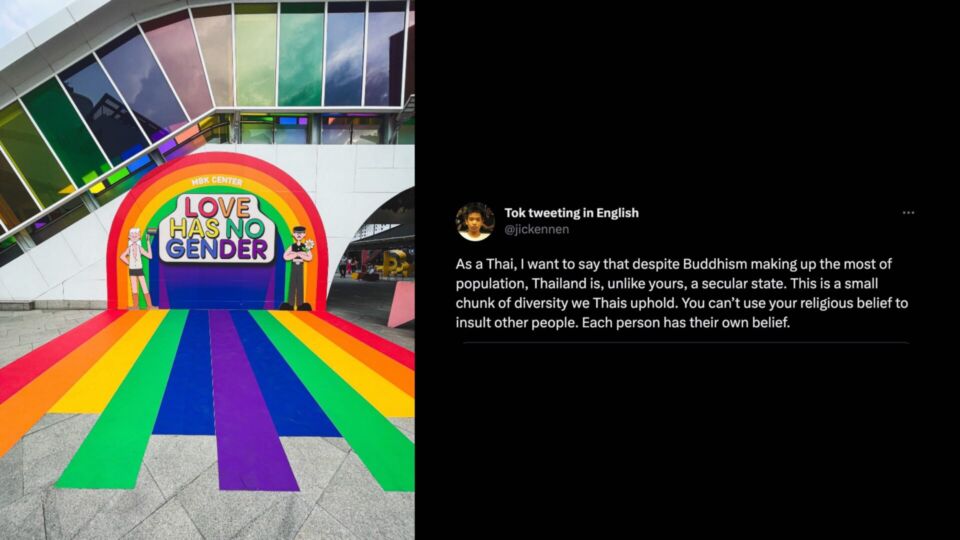In a world brimming with diverse cultures and customs, embarking on a journey to a foreign land requires more than just a passport; it demands an open heart ready to embrace and respect the rich tapestry of traditions that may diverge from our own.
However, it seems like not everyone got the memo.
On June 3, Twitter user Faisal Rahim posted about the celebration of Pride month in Thailand recently while he was visiting the neighboring country.
“In Bangkok, there are many malls that celebrate Pride months. But these places have turned into drag queen shows with trans women wearing revealing clothes and dancing in public,” he said.
“It is so inappropriate for kids. I guess that’s what ‘pride’ means to them,” he added.
His social media post sparked a strong reaction from the online community, with even Thais themselves reprimanding him for his disregard for their country’s principle of secularism.
There were also individuals who reminded him that if he couldn’t embrace cultural diversity, it would be best for him to refrain from visiting other countries.
“As a Thai, I want to say that despite Buddhism making up the most of population, Thailand is, unlike yours, a secular state. This is a small chunk of diversity we Thais uphold. You can’t use your religious belief to insult other people. Each person has their own belief,” user @jickennen tweeted.
Unlike Thailand, in terms of societal attitudes, there is a significant level of stigma and discrimination against the LGBTQ community in Malaysia.
LGBTQ individuals may face challenges in terms of acceptance from their families, discrimination in the workplace, and limited access to healthcare and social services.
As the dust settles on the controversy sparked by Faisal Rahim’s ill-considered tweet, it serves as a poignant reminder of the importance of cultural sensitivity and respect when engaging with diverse communities around the world.
In a globalized era, where borders are traversed and connections forged, it becomes imperative to approach foreign lands not as mere tourists, but as curious learners eager to understand and appreciate the unique customs and traditions that shape each society.
ALSO CHECK OUT:




